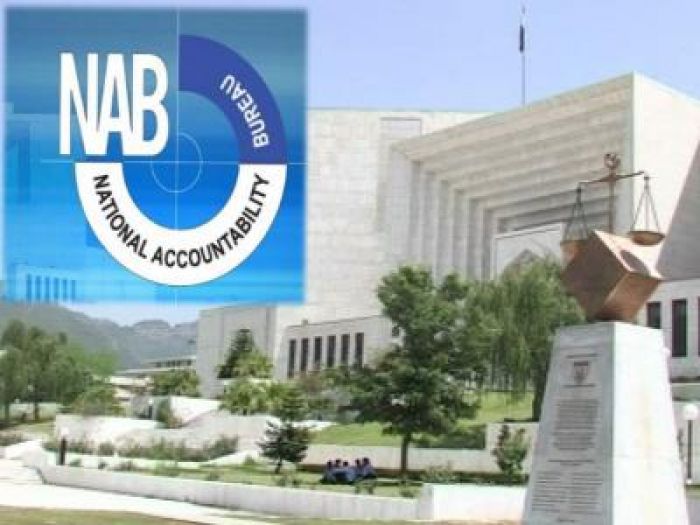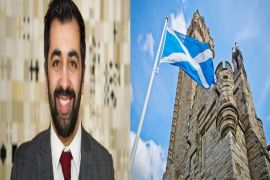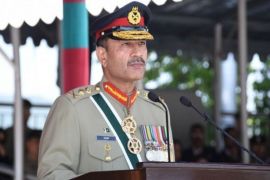ISLAMABAD: The Supreme Court allowed the Pakistan People’s Party on Thursday to become party in a case relating to the appointment of Qamar Zaman Chaudhry as chairman of the National Accountability Bureau.
Hearing the petition of Pakistan Tehreek-i-Insaf chairman Imran Khan, the two-member bench headed by Justice Khilji Arif Hussain accepted the request of Leader of Opposition in the National Assembly and PPP leader Khursheed Shah and adjourned the proceedings to April 14.
The court gave the PPP two weeks to submit its reply on the petitioner’s allegation that it had supported the PML-N government on the appointment of NAB chairman to gain ‘undue’ benefits.
The petitioner sought cancellation of the orders for Mr Chaudhry’s appointment, terming it illegal because the leader of opposition had not consulted other opposition parties, which is mandatory under the Constitution.
Khursheed Shah’s counsel Aitzaz Ahsan informed the court that his client could withdraw his plea of becoming the party if the petitioner withdrew charges against the PPP.
Imran Khan’s lawyer Hamid Khan said the man against whom the court had once ordered action had been made the NAB chief.
Later, Imran Khan told reporters that Mr Chaudhry was himself allegedly involved in corruption. “The NAB chairman was appointed as a result of an underhand deal between the government and the opposition,” he said.
He alleged that PPP leader and former president Asif Ali Zardari wanted to take his spouse Benazir Bhutto’s jewellery worth Rs80 million through a NAB court.
In his application, Khursheed Shah said Mr Chaudhry was appointed the NAB chairman in accordance with section 6 of the National Accountability Ordinance, 1999.
Mr Shah said he participated in the consultation process as the leader of opposition and not as a PPP nominee. He said he had consulted other opposition parties, including the PTI, though it was not required under the Constitution.







